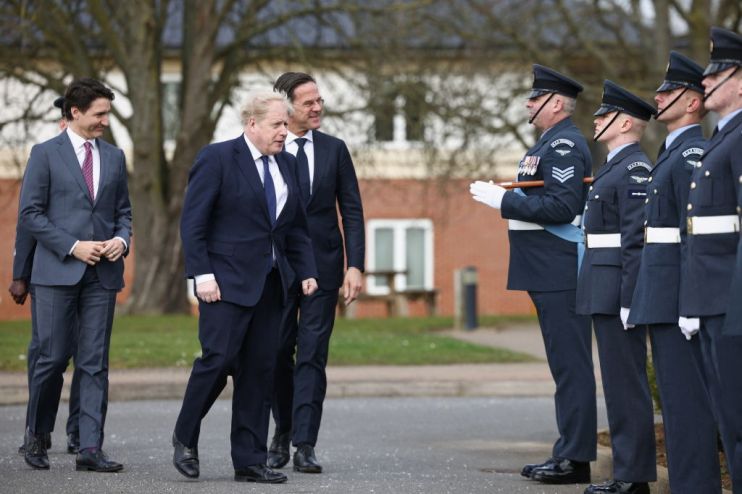As government debt jumps to fund defence spending, our economy will pay the price

Sanctions will clearly hit the Russian economy very hard. But economic prospects for the West are not exactly rosy. Twice in the 1970s and again in the early 90s, there were rapid spikes in oil prices; each instance was followed by economic recessions.
The deep recession following 2008 was, of course, due to financial causes but the surge in the oil prices – which persisted until the mid-2010s – took some of the potential steam out of the economic recovery.
The reason is simple: high energy prices transfer income from net energy consuming nations to the net energy producers. The UK as a whole is worse off.
Rishi Sunak’s ability to try and stave this off by increasing government spending is severely constrained. The Treasury will have to agree to the demands for sharply increased spending on defence as a result of the current situation in Ukraine.
Even the pacifist Germans, free riders on American and British defence spending since the end of the Second World War, have woken up and agreed to big increases in their military outgoings.
Trying to meet this by cutting other aspects of public spending will be greeted by hysterical cries of “Tory cuts!”. This slogan may have become much more appealing to this electorate. After the pandemic, the belief that governments can solve all problems has become considerably more popular than it has done for some years.
But the cost of the pandemic has hampered our ability to simply issue more government debt to fund higher defence spending.
During the financial crisis, public sector net borrowing rose to £160bn in 2009. By the end of the last decade, the annual amount had been clawed back to under £50bn.
But it soared to the entirely unprecedented peace time level of some £325bn in the 2020/21 financial year – just over 15 per cent. It is on course to fall to around half this level in 2021/22, making a cumulative increase of essentially £500bn over two years.
Throughout the Western world governments have been running up similarly massive amounts of debt. So far, the markets seem to have taken this in their stride. Though yields on government bonds have risen, they are well below the rate of inflation.
The huge uncertainty created by the events in Ukraine runs the risk that interest will increase in any event, and plans for larger government financial deficits could be the trigger.
Consumer spending continues to be held back by large government deficits. Eventually, there will need to be tax hikes to pay for this and people are, as a result, cautious.
When government borrowing rose at the start of the millenium, the percentage of income saved by households also jumped. It stayed high until the mid-2010s, as some of the uncertainty started to abate.
During the pandemic, the savings rate has been even higher. Although it has started to come down recently, any further surge in government borrowing could reverse the trend.
On a more basic level, uncertainty does not just affect financial markets. It makes individuals nervous about the future and therefore more likely to save rather than spend. In short, the outlook is pretty gloomy. The calls for the chancellor to increase spending or cut taxes will increase. But he should hold his nerve and resist these demands in order to restore confidence.
